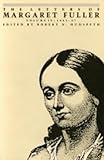The Letters of Margaret Fuller : 1845–1847 / Margaret Fuller; ed. by Robert N. Hudspeth.
Material type: TextPublisher: Ithaca, NY : Cornell University Press, [2018]Copyright date: ©1987Description: 1 online resource (330 p.)Content type:
TextPublisher: Ithaca, NY : Cornell University Press, [2018]Copyright date: ©1987Description: 1 online resource (330 p.)Content type: - 9781501725203
- 818/.309 23
- PS2506
- online - DeGruyter
| Item type | Current library | Call number | URL | Status | Notes | Barcode | |
|---|---|---|---|---|---|---|---|
 eBook
eBook
|
Biblioteca "Angelicum" Pont. Univ. S.Tommaso d'Aquino Nuvola online | online - DeGruyter (Browse shelf(Opens below)) | Online access | Not for loan (Accesso limitato) | Accesso per gli utenti autorizzati / Access for authorized users | (dgr)9781501725203 |
Browsing Biblioteca "Angelicum" Pont. Univ. S.Tommaso d'Aquino shelves, Shelving location: Nuvola online Close shelf browser (Hides shelf browser)

|

|

|

|

|

|

|
||
| online - DeGruyter Speaking of Slavery : Color, Ethnicity, and Human Bondage in Italy / | online - DeGruyter The Letters of Margaret Fuller : 1817–1838 / | online - DeGruyter The Letters of Margaret Fuller : 1842–1844 / | online - DeGruyter The Letters of Margaret Fuller : 1845–1847 / | online - DeGruyter The Letters of Margaret Fuller : 1848–1849 / | online - DeGruyter The Letters of Margaret Fuller : 1850 and undated / | online - DeGruyter The Letters of Margaret Fuller : 1839–1841 / |
Frontmatter -- Preface -- CONTENTS -- Illustrations -- Acknowledgments -- Editorial Method -- Editorial Apparatus -- 1845 -- 1846 -- 1847 -- Index
restricted access online access with authorization star
http://purl.org/coar/access_right/c_16ec
From 1844 to 1847 Margaret Fuller served as review editor for Horace Greeley's New-York Herald Tribune—and herself reviewed books by Edgar Allan Poe and Herman Melville among others—and published Papers on Literature and Art, a volume of her own essays. She became known as something of a radical in literary circles, allying herself with George Sand, Emerson, and Goethe, and with the Young America poets, Evert A. Duyckinck, Cornelius Mathews, and William Gilmore Simms. In August 1846 Fuller left for Europe with her friends Marcus and Rebecca Spring. Her letters describe her meetings there with Thomas Carlyle, George Sand, Lamennais, and the aging Wordsworth, and with such political figures as the exiles Giuseppe Mazzini and Adam Mickiewicz. Often the letters expand upon topics addressed in her public writing.Her life in these years, however, is dominated by her love for the German businessman James Nathan. The nearly fifty letters she wrote to him in 1845 and 1846 show her startling willingness to take a subservient role and her longing for emotional acceptance. Dreams of a lasting relationship with Nathan end in Europe with his betrothal to another woman, but by the spring of 1847 she had recovered from her deep disappointment and gone on to achieve great personal growth, both in her consciousness of herself as a woman and in political awareness. By the time this volume comes to a close she has met Giovanni Ossoli, a man who shares her ideals and offers her emotional security.
Mode of access: Internet via World Wide Web.
In English.
Description based on online resource; title from PDF title page (publisher's Web site, viewed 26. Apr 2024)


